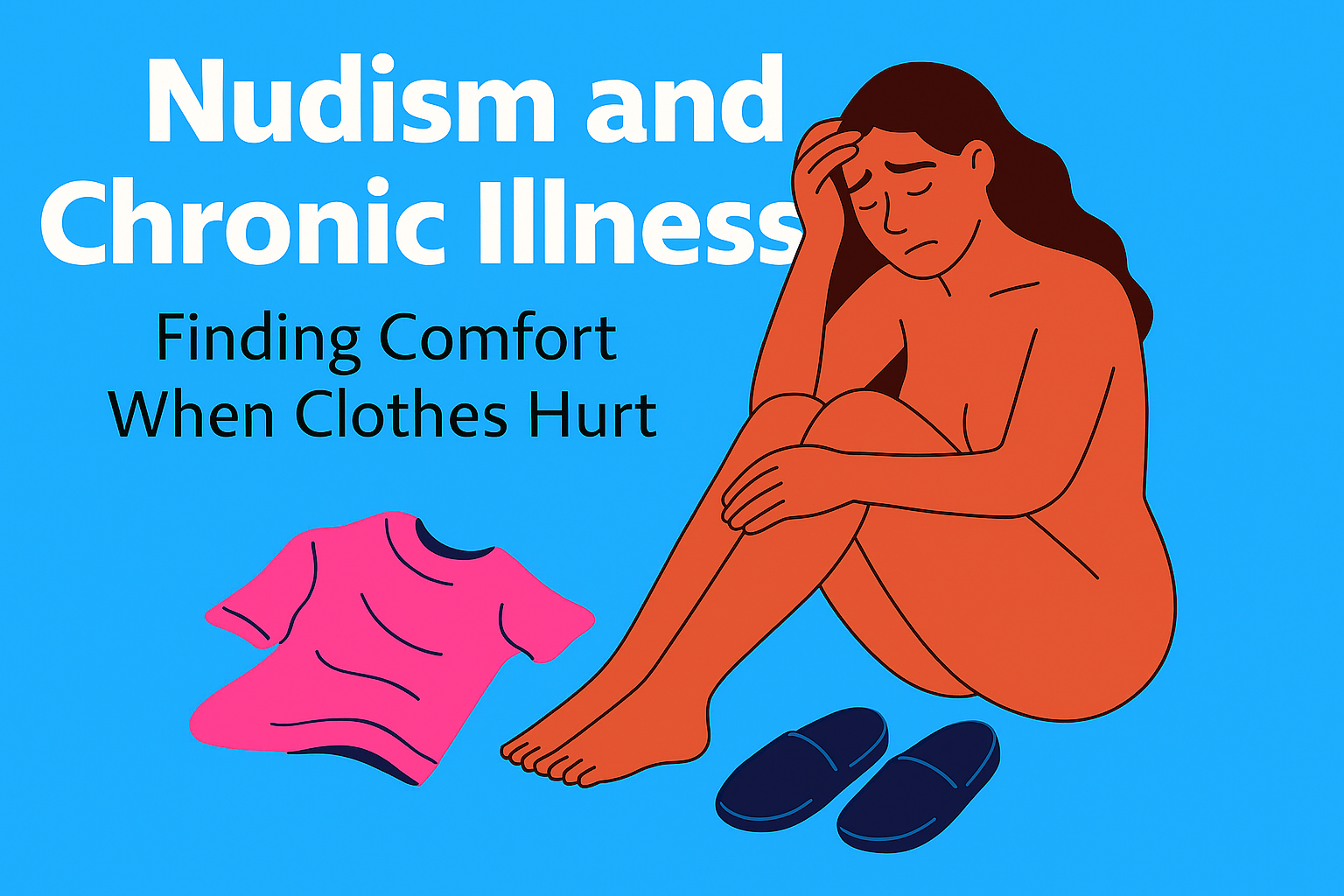Nudism and Chronic Illness: Finding Comfort When Clothes Hurt
For many people, getting dressed is an everyday ritual they barely think about. But for those living with chronic illnesses like fibromyalgia, eczema, neuropathy, sensory processing disorder (SPD), or Tourette’s syndrome, clothing can feel like a daily battle. Fabrics that seem soft to others can feel like sandpaper on hypersensitive skin. Elastic waistbands, bra straps, or seams can dig into sore muscles and inflamed nerves.
Over time, the simple act of wearing clothes can become a source of stress, pain, and exhaustion. Yet many people in chronic illness communities have never heard of or considered one potential tool for relief: nudism.
🌿 Chronic illnesses that can make clothing unbearable
-
Fibromyalgia: Characterized by widespread pain and heightened sensitivity to touch, making pressure from clothing painful.
-
Eczema and other skin conditions: Irritation, itching, and raw skin can worsen with constant friction from fabric.
-
Peripheral neuropathy: Damage to nerves can cause hypersensitivity to even the lightest touch.
-
Sensory processing disorder (SPD): Common in autism and ADHD, SPD can make certain textures or tight-fitting clothes intolerable.
-
Tourette’s syndrome: Many people with Tourette’s experience tactile hypersensitivity or intense discomfort from clothing textures, seams, or tags, which can trigger tics or increase distress.
These conditions don’t just cause discomfort—they can limit mobility, drain energy, and erode mental health. When getting dressed becomes a painful obstacle, it’s easy to feel defeated before the day even begins.
🌾 How nudism can help relieve symptoms
For some people, removing clothing entirely—even for short periods—provides immediate relief. Here’s why:
✅ Reduces friction and pressure: Bare skin doesn’t have to contend with seams, tags, waistbands, or tight areas that can cause pain flare-ups.
✅ Prevents overheating: Many chronic conditions involve heat sensitivity; being nude allows the body to regulate temperature more naturally.
✅ Soothes irritated skin: For eczema or psoriasis, exposure to fresh air can reduce moisture buildup and irritation.
✅ Calms sensory overload: People with SPD or sensory sensitivities tied to Tourette’s sometimes find relief when they can control what touches their skin—and nothing is often better than everything.
✅ Improves body awareness: Being nude can help reconnect people to their own bodies, which is often disrupted by chronic pain, neurological tics, or medical trauma.
⚠️ Important considerations
Nudism isn’t a cure, and it’s not for everyone. Some may feel vulnerable, unsafe, or uncomfortable without clothes. For others, mobility, home environment, or social circumstances make nudity impractical. And in many places, public nudity is illegal or carries social risks.
If you’re considering trying nudity for comfort:
-
Start at home, in a safe, private space.
-
Go slowly—try partial nudity first if full feels overwhelming.
-
Pay attention to temperature, surfaces, and personal hygiene to protect sensitive skin.
-
Talk with your healthcare provider if you have open wounds, infections, or concerns about your condition.
❤️ A path to body comfort without shame
For those who can practice it safely, nudism can be a powerful tool to reduce pain, improve comfort, and reclaim body autonomy. By talking openly about this often-taboo subject, we can break the silence and help others explore new ways to live more comfortably with chronic illness.

